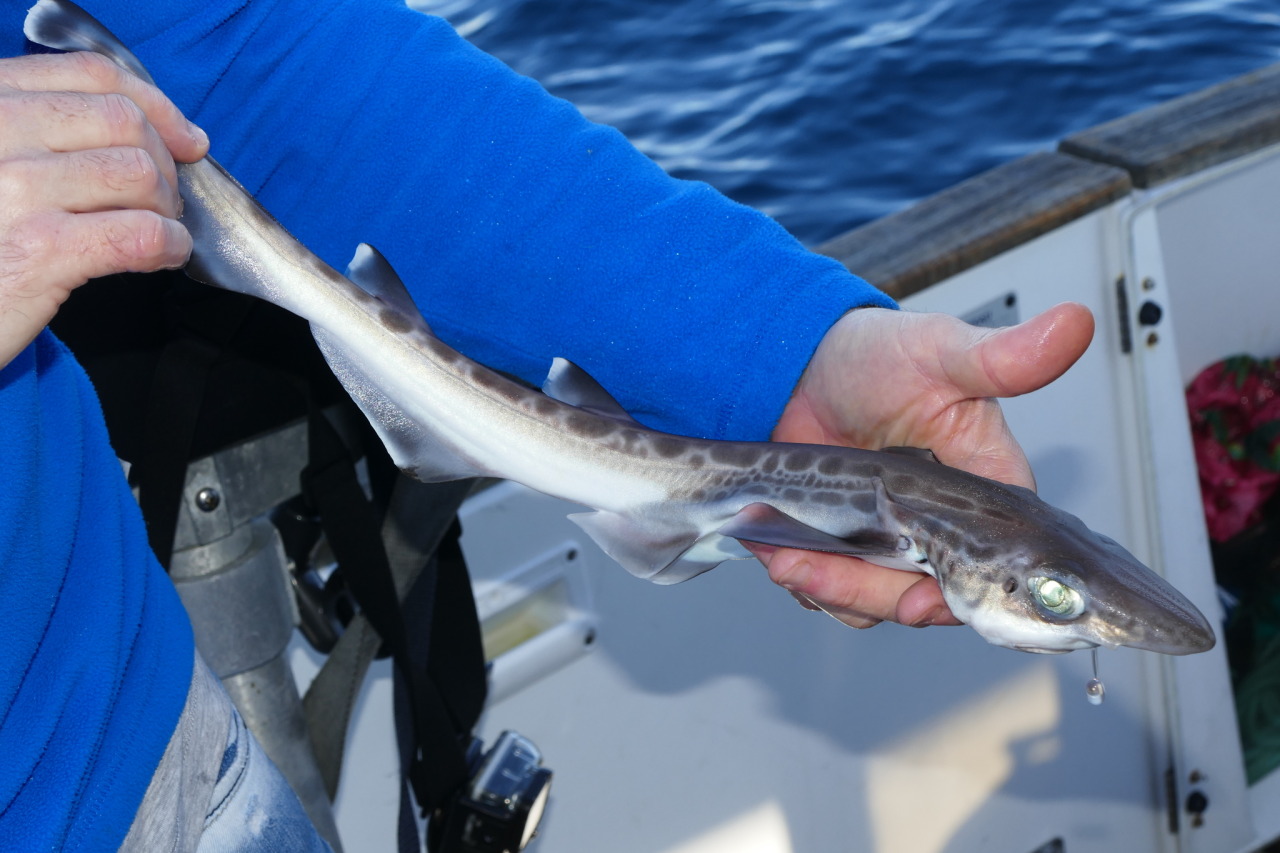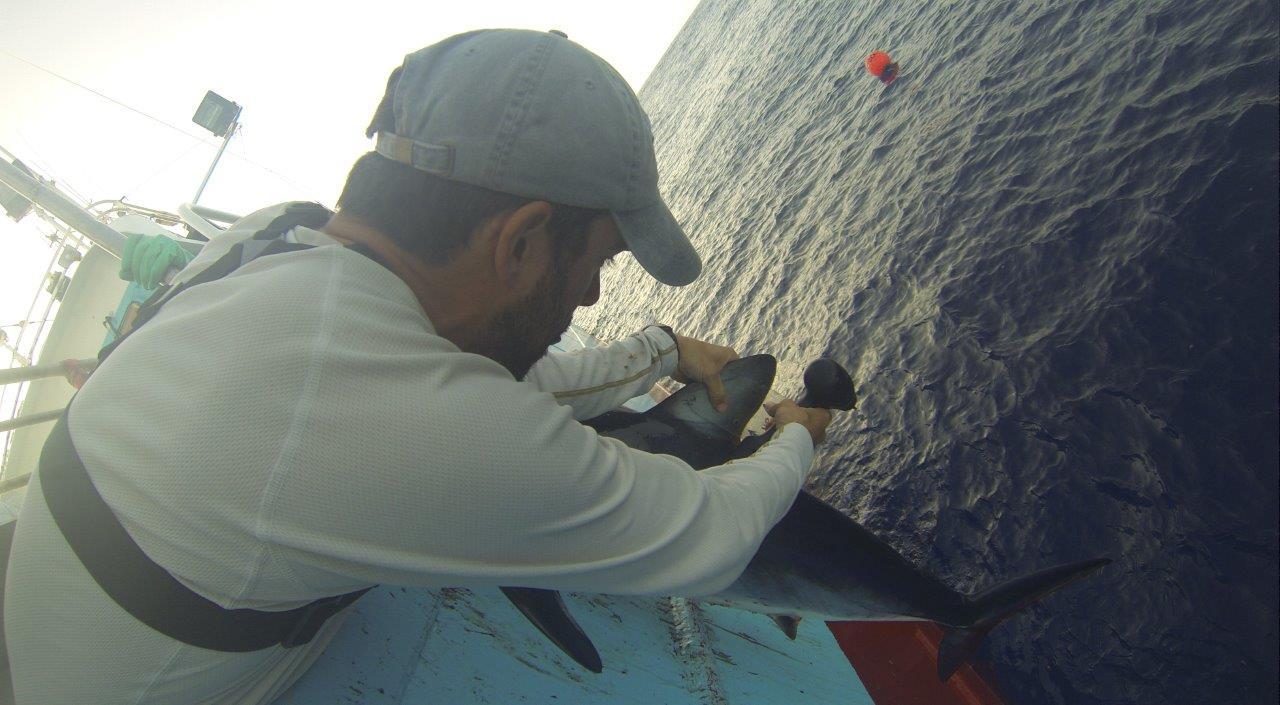Observation of the Week, 11/14/17

This pair of blackmouth catsharks, seen off of Spain by @gmucientes, is our Observation of the Week!
A marine biologist who’s currently researching the spatial ecology of pelagic sharks, Gonzalo Sandoval is often far away from the mainland while at work, off of the Azores or Cape Verde, so last month’s research excursion just off of northwestern Spain, was a pretty short sojourn for him.
He was conducting a survey about blue sharks, and recalls taht “while waiting for the blue sharks to appear we wondered what shark species live at the very bottom. We were able to capture two Galeus melastomus [blackmouth catsharks] individuals at 700 meters depth.” Gonzalo uses “rod and reel and longliners” to capture sharks for his surveys, and says
juveniles live in shallower waters than adults, this explains why I found these juvenile sharks in not very deep water. Adults can [dive to] 1400m. This shark is abundant in the northeast Atlantic continental slope. It is oviparous and can have several mature eggs in oviduct simultaneously. Despite fishing pressure (by-catch) populations don't seem to decline.”
Named, unsurprisingly, for the black color of its mouth tissue, blackmouth catsharks are generalist feeders, who often swim along the muddy bottoms and use the the ampullae of lorenzini in their large snouts to suss out prey - often crustaceans, fish, and cephalopods. They grow to about 67 cm (26 in) in length, and weigh about 1.4 kg (3.1 lb).
As these juvenile sharks were not a target species for Gonzalo, and were very small, they were let go without being tagged. In addition to blue sharks, he also studies shortfin mako sharks, and says he is “currently conducting a PhD in spatial ecology, feeding and fisheries of the mako. In combination with my academic activity, I regularly get involved in scientific surveys and other research projects as a professional diver or biologist consultant.”

Gonzalo (above, tagging a mako), explains that
since I was a kid, I enjoyed watching animals in their habitats and trying to understand their behaviours. First close from home. Later, on bigger exploration trips across mountains, jungles and the open ocean... I consider myself a passionate life watcher in my free time and a marine biologist at work...iNaturalist is the perfect tool to organise my field data and contribute to the ecological pool knowledge and share these observations with other people interested.
by Tony Iwane
- Here are videos of a tagged mako being released, as well as a group of juvenile blue sharks from Gonzalo’s work.
- Gonzalo is the co-founder of Ecologia Azul, an association of people dedicated to research, exploration and conservation of nature.





Comments
Add a Comment